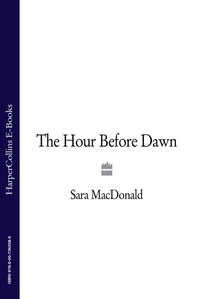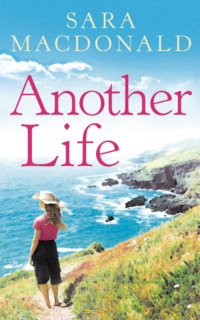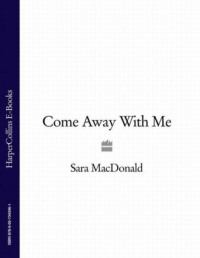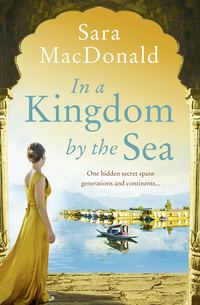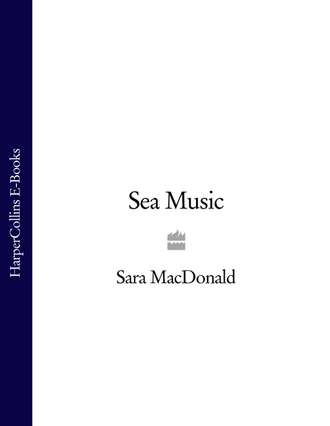
Полная версия
Sea Music
He is not looking forward to this meeting. He hopes they can at least get back to the point of civilised friendship. They have mutual friends and he would like to establish an understanding to avoid embarrassment for everyone. Remembering her cold voice on the phone he thinks friendship, at this point, is unlikely.
He parks the car and carries her bag to the entrance. He has always liked the clear modern lines of the museum. It had risen from the ruins of post-war Berlin like a building newly washed.
Inga is standing watching him walking towards her. She is not smiling. He greets her with two kisses. Her back is stiff, her face cold.
‘How are you?’ he asks.
‘I’m just fine,’ she says evenly.
‘Are you sure that you don’t have time to have a coffee with me? The museum does not open for two hours.’
‘My hours are nothing to do with whether the museum is open or shut, but with the artefacts. As you know.’
‘Of course,’ he says, smiling, ‘I know. I would like to have coffee and talk for a few minutes, if you have the time.’
She hesitates. Sadness and the feeling he can still engender in her pass briefly across her face. It would be kinder if he just handed her bag to her and left, but something obstinate in him wants to leave this relationship tidy and finished. Without rancour.
She holds the door open for him, reluctantly. ‘Come in. I’ll make you a quick coffee.’
She fiddles with the filter machine in her office and he watches her. She is very pretty, he is very fond of her, yet he feels no regret. ‘Inga, I really do want you to be happy. You must have known, as I did, that if you got involved with a man much older than yourself this parting was inevitable?’
She pours his coffee and carries it over to him, places sugar and milk in front of him, but does not sit with him.
‘It was only inevitable when you decided that it was. I suddenly bored you with a need for something more from you. I stayed the course longer than most, so perhaps I should be flattered.’
He is surprised. ‘You made the decision to end our relationship.’
Inga laughs without humour. ‘You ended our relationship. Look, I understand. You are incapable of emotional commitment. You told yourself I left because I wanted children. This is not true. I am not overtly maternal. I left because I suddenly saw no future … Nothing was going to change.’
Her anger shows suddenly. ‘I deserve more. You are happy to be with me when you are a little lonely and equally happy to drop me when you are your normal self-sufficient self. Yes, we often had a very good time – you are an interesting and charming man to be with – but it was not enough. I wanted to live with you and you made it clear that you did not want me to. Too often you preferred to go away without me …’
She looks away, fiddles with her coffee cup. ‘You seem to need no one. I have some pride. I left because you were destroying my sense of self. I was losing confidence in myself and my work.’
She looks straight at him suddenly. ‘I pity you. To avoid the pain of loving, you miss the joy. Like so many of your generation, you are dishonest about your motives, in everything you do and in everything you did.’
They stare at each other. The coffee scalds his mouth. The words hang between them. Both their faces are shocked and angry. Like your generation. She has wanted to say this before to him, he can see that. It came out before she could stop it, startling her as much as him. Words that cannot be taken back. The meaning all too clear.
Silence hangs between them. He gets out of his chair and walks away towards the entrance. As he reaches the doors he hears her voice, softly this time.
‘I know that you wanted to draw a neat line under us today. So much easier when we meet in public. Neat lines are not always possible. Real life is messy and it hurts.’
He does not turn round, but moves steadily to his car. He does not see that she is crying as she watches his tall figure walk away from her. Ten years ago she was thirty-two. Young enough to be his daughter. She found him dangerous in an exciting and powerfully sexual way. He was a challenge she has lost. Her friends warned her. She knows him barely better now than she did ten years ago. She shuts the entrance door firmly so that she does not see him drive away.
The traffic is much heavier as he drives home. He taps the wheel impatiently as he sits trapped between two school buses, idly watching the people on the pavements, some hurrying, some stopping at the little Turkish café he used to wait in for Inga sometimes.
Your generation. His generation watched Berlin reborn from rubble. What the American and British bombers did not destroy, the Red Army finished. His generation watched as Berlin was carved up into four pieces … ‘YOU ARE LEAVING THE AMERICAN SECTOR’ – the sign, which had you sweating in your sleep, that one wrong turning, one small error, would land you in the Eastern sector.
The traffic picks up speed and he breathes more easily as he heads out of town. Mutti moved sharply and wisely from her old family home in the east, ahead of the Red Army. She hated the British and American bombers, but she feared the oncoming Russians more.
He was sent back to Berlin at the end of the war with a medical unit. Berlin, about to fight for its life, left with only the old, the lame and children to defend it. Berlin had not been his childhood home as it had been Mutti’s but the devastation was still shocking. He thought that Berlin could never be rebuilt.
Reaching home, he parks and lets himself into the flat. He is angry with Inga for reminding him of the past, his age, and the fact that her generation and her children’s generation can never forgive or forget his. Because it is held in front of them, in books, films, or a left-wing challenge, by someone, somewhere, every single day. Her age group seem to have a monopoly on self-righteousness, while knowing nothing.
He lights a small cheroot and sees with a start that he has received the fax he has been waiting for. He has waited, restless, all week for Hans to get in touch. He tears the message off the machine.
What am I starting here? What am I doing?
Hans urged caution. Any hint of irrationality made him nervous. He left for London reluctant and tight-lipped. He knows only too well obsession can grow. Catch a glimpse, a smell, a memory and you want more. The past you buried always surfaces. Who said that to him? Suddenly, he needs to know what is shadow caused by faulty memory, and what is substance.
The fax is disappointingly brief; tells him little. The woman is, unsurprisingly, clever and ambitious. Hans lists her academic achievements at length. He details minutely the steady rise of her career. But there is little about her personal life. Is he doing this on purpose? Hans can find out how a man turns in his bed. How he makes love to his wife. What he eats for breakfast. He can find out anything he wishes to know. If he wants to …
This woman was born and brought up in the west of England. Head girl at some English boarding school. One brother. One child from a brief marriage to an Italian. Married for four years to Rudi Gerstein, a Swiss-German banker. She is an excellent linguist and so is her daughter.
Is this it? This barrister could be any middle-class English girl. Yet the one thing he needs to know Hans cannot possibly give him. He looks out of the window at the rain blowing sideways, obscuring his view, trapping him with ghosts that are rising like whispers out of the dark edges of the room.
The past is suddenly crowding in from all directions. In the long nights alone now he feels the horror of being overtaken by memories he believed he had firmly buried.
Chapter 11
Dancing against Martha’s closed eyelids, the sun. Light and bobbing colours, patterns and floaters. A thrush in the garden sings and sings. The rain has stopped and the smell of cut grass comes in the window on a faint breeze.
In a moment Mama, or Hanna, their maid, will call up the stairs to make sure she is awake. Hanna, who is not much older than Marta, gets very cross with her because she will lie there ignoring Mama’s calls.
Hanna is a thin, obedient girl, who comes from a religiously observant Jewish family who vaguely disapprove of the Oweski family. Papa says they are so poor it is no wonder little Hanna has no sense of humour.
Marta loves these mornings. She has secretly been out in the garden in the first light, running in bare feet across the deliciously cold wet grass.
She likes to lie without moving, her face in pale yellow sunshine, daydreaming. She loves the dancing colours behind her closed lids and the safeness of opening her eyes again to familiar background noises, the sounds of a household waking up. Marta would like to be a child for ever and as she thinks this she remembers … she remembers with a jolt and her eyes fly open.
Fly open to an unfamiliar room of beige walls and white paint work. Beyond the long windows, lawns stretch into glossy-leafed shrubs and old fir trees that form a wall of green.
Martha sits up quickly, then, suddenly dizzy, hangs on to the edge of the bed for a moment. She goes slowly to the door and listens. Hearing nothing, she turns the handle and goes out into a large flagstone hall that leads into a drawing room filled with hot afternoon sun, which has bleached, over the years, all the covers and cushions to a uniform beige.
No one is there, but in a corner of the room a television flickers with images. Martha looks out into a musty geranium-smelling conservatory but cannot see her parents or Hanna. She swallows a slow-rising panic that they have all been taken from her while she slept in this place she does not remember coming to.
She pads on small bare feet to the French windows and looks out into the garden. She can hear voices now. A man and a girl are planting something near the cherry tree. She has no idea who they are.
Confused, desperately searching her mind for a clue to anchor herself here, Martha turns back inside to the flickering movements of the small screen, which has the sound turned off. She sees columns and columns of people moving in a mass along a road. Walking, hobbling, being pulled on carts or tractors. A great wash, a tide of human misery, dragging themselves onwards to safety, moving like robots in stunned bewilderment and fear.
The camera pans in on haunted faces and Martha, transfixed, is back, back with the fear and the smell, and the movement like an endless surge of water. Vast masses of human beings being herded, displaced and hated, to a fixed end. She crumples to the floor, watching. Remembering.
She rocks for Mama, for Papa, for poor serious little Hanna, for all those she loves, her eyes glued to the small flickering screen.
An old man is suddenly beside her, calling her name. The television is abruptly switched off. He bends and helps her to her feet, sits her in a chair, talking, talking in that gentle loving voice she recognises. Martha stares at him. It is Fred. Of course. It is Fred. This house is her home.
She smiles at him, closes her eyes with utter, utter relief, relaxes. She is Martha Tremain, an Englishwoman.
Barnaby takes Lucy to the garden centre to buy primroses for Abi’s grave. Little else will grow under the cherry tree. They buy six cream primroses, and a white cyclamen for Martha.
Barnaby looks at seed packets, wondering if he should buy earth so that Martha can plant seeds in trays in the conservatory. The greenhouse is now irremediable, having collapsed inward on itself, burying seed trays, pots, faded baskets of plant food and all things dumped there over the years. Vine and nettles have all but obscured where it lies.
Barnaby keeps meaning to do something about it, but time and tiredness, or perhaps a depression that he knows will descend if he starts looking too closely at all that needs doing, defeat him every time.
Lucy has wandered away and he finds her looking at the water plants.
‘Be nice to clear the pool, wouldn’t it? I loved the lilies and those water buttercup things that used to grow there.’
They both look down, thinking of how the garden once was. Lucy says suddenly: ‘Barnaby, Gran left Poland in 1940, didn’t she?’
Barnaby smiles. ‘Yes, she did. What made you suddenly ask that?’
‘I was just wondering if Mum was born here in Cornwall or in London. I always thought it was London, but I can’t remember anyone telling me that.’
‘It was definitely London. Martha and Fred lived there at the end of the war. They came down regularly, despite the journey, to stay in the cottage and check on the house, which was being built at that time.’
‘So … I know they met in London when Gramps was on leave, but when did they get married?’
‘I gather, very soon after they met. In the war people didn’t wait. They grabbed at happiness because no one knew what was going to happen next.’
‘So they would have been married in 1943?’
‘Yes. Why the sudden interest, darling?’ He looks at her closely. ‘Were you wondering if Anna was born before they were married?’
Lucy goes red. ‘It is just,’ she says quickly, ‘that when I was younger I used to ask questions about them meeting and although Gran always told me it was the best day of her life when she met Grandpa, neither of them seemed to like talking about that time, and Mum always seemed vague whenever I asked her things about London.’
Barnaby laughs. ‘I should think she was vague. She was a baby in London and very young when they moved here, Lucy. Can you remember anything much before you were four or five?’
Lucy thinks. ‘No, I suppose not,’ she says. ‘I think my first memory is either you taking me to a fair at night. Or getting smacked by Anna for locking that horrible au pair in a cupboard.’
‘You were, let me see, about four and a half when I took you to that fair. You hated every minute. You were coming down with a bug and the crowds bothered you. The horrible au pair, I’m not sure … five, maybe six.’
They make their way to the till. Barnaby grabs some small seed trays, two packets of Virginia stock and a small bag of compost.
‘For Martha?’ Lucy asks.
‘Yes, I thought it might be something for her to do.’
Back in the car, Barnaby says, ‘What you have got to remember, Lucy, is that Martha arrived in a strange country, younger than you are now, having left everyone she loved, to live with strangers. We have no idea of the conditions she left behind her. She had the rest of the war, frightened and lonely, to imagine what might be happening to her family. Knowing that they probably would not survive.’
Barnaby glances at Lucy as he drives. ‘I do not know what state of trauma she was in when she and Fred met. All I do know is that your grandfather never let Anna or me ask her questions about the war or about her life in Poland.’
‘I know. Anna told me she never knew anything about Martha’s childhood. I can understand about the years just before the war, but I can’t understand why Gran would not want to talk about her childhood if it was happy. I mean, everyone looks back on the happy bits of their lives, don’t they?’
‘When I was very young, Lucy, when I had fallen or had a temperature, she sometimes used to sing to me without knowing she was singing in Polish. As I listened, the sound always seemed to turn into a lament. She would stop suddenly and I would put my hand up to her face and she would hold it there, flat against her cheek, her own hand over it. Small as I was, I felt the enormity of her sadness without, of course, understanding why.’
Lucy swallows. Cannot speak.
Barnaby goes on, almost to himself. Lucy cannot ever remember him talking to her like this. ‘When I was growing up I longed to know; felt Anna and I would be enriched by knowing. We only had tiny snippets: a recipe, a childish game. Fred would tell both Anna and me that we only had the right to know the things Martha wanted to tell us. Maybe one day she would be able to speak of happy times in Poland. If not, we would have to understand.’
‘Now,’ Lucy says slowly, ‘even if she wanted to tell us anything, she can’t. It’s not fair for Gran to end up like this. God is cruel.’
‘Life is cruel, darling. I often think – I may be quite wrong, of course – that Anna might often be … tricky –’
‘Difficult, you mean, Barnes.’
‘Don’t interrupt me. Anna might often be … difficult because Martha and Fred must have been adapting to each other, to life after the war, to all that had happened to them both, when she was born. Even when I was a child I can remember them being very wrapped up in each other, very concerned for each other’s welfare.’
‘Were you lonely, then?’
‘All children are lonely sometimes. Our generation had a different relationship with their parents. Fred and Martha were the most loving of parents, but there was more distance between us than your generation has, on the whole, with their parents. Boarding school, as you know, accentuates that distance.’
They turn in the gates. It is early afternoon and Martha will be resting and Fred will be asleep under the paper. Mrs Biddulph will be listening to The Archers. As they pull up in front of the house, Lucy knows this is the time to ask Barnaby about the documents she found.
She opens her mouth, and Barnaby says, suddenly, very quietly, ‘Maybe life is not so cruel. Martha, returning to her childlike state – maybe now she can remember happy times in Poland, memories she blocked because they were too painful to remember.’ He pulls the key out of the ignition and turns to Lucy. ‘Maybe the sadness now is mine and Fred’s, because we can remember her when she was young and bright and full of fun. I am so afraid I will forget how she once was.’
Barnaby’s face. The line of his mouth held in a loss he feels everyday and hides. Lucy leans forward and hugs him, her head pressed away, hard into his shoulder. For the first time she feels the sheer weight of his tiredness in caring for Martha and Fred, day in and day out, without reprieve.
‘I am so glad we talked,’ she says into his shirt.
‘So am I, darling.’ He kisses the top of her head. ‘Come on, let’s go and get some bread and cheese while everyone sleeps. Then we’ll put those primroses under the tree.’
As Lucy waters the primroses on Abi’s small grave she realises it is the first uninterrupted conversation she and Barnaby have had for ages. Mostly they are both too busy or too tired by the time Martha and Fred are in bed.
She thinks of her own father, whom she has never met. Anna does not even know where he is any more. Claudio Pedrazzini – she has a cloudy photograph of him standing squinting into the sun in Milan. She could bump into him and never even know. Barnaby says one day she will probably want to try to trace him. She has inherited none of his musical talent, but, so Anna says, much of his laid-back nature.
She wonders, as she presses the wet earth down over the roots, if he ever, in idle moments, thinks about her. She has been lucky; she has always had Barnaby.
Lucy walks across the garden to put the watering can back into the falling-down garage, full of ancient bicycles and rusty paint tins. She thinks that her first instinct in not telling Barnaby about the papers she found was right. Either Barnaby knows and it is some secret he thinks should be kept, or it would be one more thing about Martha to make him sad. It isn’t her business. It is Gran’s. If there is a secret, it is not hers to give away.
Chapter 12
Lucy, finishing her early shift at the hotel, drives slowly home. It is an amazingly beautiful morning with no clouds. Cold but clear. The trees are unfurling pale virgin leaves, like tiny fists. Spring is everywhere, and Tristan will soon be gone to a cold and hostile place where spring comes late.
She stops the car and fishes in her bag for her mobile phone. She gets out and goes to sit on the sea wall, watching a fast sea swell and crash on the rocks below her. After she and Barnaby talked about Martha she felt better, for a while. When she is busy, she can push away the image of that strange piece of paper in the brown envelope, but her mind keeps returning to it.
What else lies up there in the trunk? What other shock lies in that faded box? At first, she did not want to know. But as the days slip by and leaving for London gets closer, she feels torn between wanting a glimpse of something that might settle her anxiety, and a longing and equal dread of knowing the truth.
She has not told Tristan. It is not something she can discuss on the phone. Talking about it will make it real instead of lying like a dark place on the edge of her mind. Lucy wants to believe there is a simple explanation. She wants to believe everything is exactly as she has always been told all her life. The story of Gran’s arrival in England in the war. The romantic meeting and falling in love with Fred. A rushed war wedding before his leave ended. Anna’s birth at the end of the war.
She wants to go on believing this. Yet that small faded box was obviously not meant to be found, so why not burn the papers instead of hiding them? Lucy has thought about it a lot. It is hard, maybe impossible, to destroy your own or other people’s identity or possessions. After all, it is who you are.
Lucy knows she would have had to block her mind too if the people she loved had been left behind, killed in the war or perished in a concentration camp. So why is her mother’s birth registered in a German document dated 1941 with an identity card dated 1943?
Was Anna really born in Warsaw, not London? Is she really four years older than she thinks she is? Perhaps Martha came to London later. Perhaps Grandpa met her somewhere else and they had a baby before they were married. Maybe Martha and Anna had to have German papers to get to England. That would mean Grandpa …
Lucy shivers, suddenly afraid, as if Martha’s past is about to cast a great shadow over them and they will be swallowed in darkness. Like Barnaby, she hates secrets: they surface unexpectedly and hurt.
She dials Tristan, looking down on the waves, feeling the cold spray on her hands. She hates the thought of him going to a place full of hatred, American bombing and streams of refugees. She listens as the phone rings and rings, then Tristan’s breathless voice comes on the line.
‘It’s only me,’ she says. ‘I know it’s early, but I just wanted to hear your voice.’
‘Soppy tart … Phew … Hang on … got to get my breath back. Just got back from a run. Phhhew … It’s an amazing day here.’
‘It is here too. Huge sea.’
‘Are you OK, Luce?’
‘Yes. Just dreading you going. Tris, was it really necessary to flatten Belgrade?’
Tristan sighs. ‘Debatable. Luce, come on, I’m not taking off yet. We’ve got leave together before I go. This isn’t like you, my little ray of sunshine. Is there something you’re not telling me? Like you want to throw me over, not for a fisherman but, quelle horreur, a bleached and muscled surf guard?’
‘You wish!’ Lucy almost tells him what is worrying her, but it is not the time.
‘Luce, I have to go. I’ve got to shower and get into uniform. I’ll ring you later in the day. Be happy, sweetheart, it’s such a gorgeous day.’
Lucy drives home and parks in the drive. She sits for a moment looking across the lawn, listening to the morning birds. Gran’s garden is a spring garden and everything is poised to explode into colour. She shrugs her mood off, closes her mind. It is impossible to be unhappy on a morning like this.
Lucy lets herself into the house. Barnaby is dashing about with Martha’s tray and he looks relieved to see her.
‘Thank goodness, darling. Your gran has dressed herself for high summer and refuses to change into warmer clothes. She’s in the bathroom at the moment, very cross with me. Fred is having tea in bed until the bathroom is free and I have ten minutes to get over to St Michael’s for Holy Communion.’




